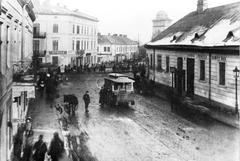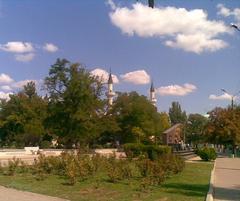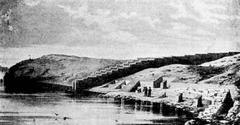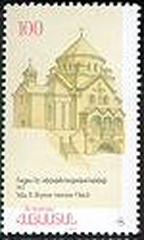Nekrasov Square Visiting Hours, Tickets, and Historical Sites Guide in the Autonomous Republic of Crimea, Ukraine
Date: 14/06/2025
Introduction
Nekrasov Square, located in central Simferopol—the capital of the Autonomous Republic of Crimea—is a historic and culturally significant public space. Named after the 19th-century Russian poet Nikolay Nekrasov, the square embodies Crimea’s rich, multi-layered heritage shaped by Russian imperial, Soviet, and contemporary influences. As a 24/7 open urban space with no entrance fee, Nekrasov Square serves as a vibrant civic hub where history, culture, and daily life intersect. Its Soviet-era architecture, landscaped gardens, and proximity to major attractions such as the Aleksandro-Nevskii Cathedral and Simferopol Art Museum make it a must-visit site for travelers seeking to explore Simferopol’s historical and cultural landscape.
Beyond its physical features, Nekrasov Square plays a pivotal role in the cultural and political life of the city. It is a gathering place for public celebrations, commemorative events, and political rallies, mirroring the region’s complex social fabric woven by Russians, Ukrainians, Crimean Tatars, and other communities. As a living repository of collective memory and civic expression, the square invites visitors to engage meaningfully with Crimea’s diverse history and contemporary realities.
This guide offers a comprehensive overview of Nekrasov Square, including its historical evolution, architectural highlights, practical visitor information (such as hours, accessibility, and guided tours), nearby attractions, and essential travel tips. For further context, readers can consult reputable sources like National Geographic, the Encyclopedia of Ukraine, and official statements on Crimea’s status (US Embassy).
Table of Contents
- Introduction
- Historical Overview
- Cultural Significance and Public Memory
- Architectural Features and Urban Landscape
- Visiting Nekrasov Square: Hours, Tickets & Practical Tips
- Accessibility
- Guided Tours & Visitor Recommendations
- Nearby Attractions
- Events and Activities
- Travel and Safety Information
- Preservation and Modern Development
- Frequently Asked Questions (FAQ)
- Conclusion
- References
Historical Overview
Origins and Early Development
Nekrasov Square’s origins trace back to Simferopol’s urban expansion in the late 19th and early 20th centuries. The square’s naming after Nikolay Nekrasov underscores the Russian cultural influence that became prominent following Crimea’s annexation by the Russian Empire in 1783. Designed as a civic center, the square’s development reflects imperial Russian urban planning traditions, which emphasized broad boulevards, public monuments, and administrative buildings (National Geographic).
Soviet Era Transformations
During the Soviet period, the square became a focal point for political rallies, parades, and cultural festivities. The area was reshaped with Soviet government buildings and monuments, embodying the ideological narratives of the era (Wikipedia).
World War II and Reconstruction
Nekrasov Square suffered substantial damage during World War II but underwent significant postwar reconstruction. This revitalization commemorated Soviet resilience and served as a venue for community gatherings and memorial events.
From Late Soviet Times to Ukrainian Independence
After the 1954 transfer of Crimea to the Ukrainian SSR and subsequent Ukrainian independence in 1991, Nekrasov Square maintained its status as a central venue for civic and cultural life. It hosted diverse events reflecting the region’s evolving and contested identity (The Bird Feed).
Cultural Significance and Public Memory
Nekrasov Square is not only a physical landmark but also a significant site for public memory and cultural expression. It has witnessed historical events, including rallies related to the 2014 annexation of Crimea. The square represents the interplay of Russian, Ukrainian, and Crimean Tatar identities, serving as a platform for commemorations, cultural festivals, and political demonstrations (Culture Voice Crimea).
Architectural Features and Urban Landscape
Soviet-Era Monumentality
Nekrasov Square is surrounded by buildings exemplifying Stalinist and post-war Soviet architectural styles, characterized by imposing facades, symmetry, and classical elements. The landscaped open space is punctuated by sculptures, benches, and mature trees, offering both grandeur and accessibility (Kurby Blog).
Neoclassical and Modernist Influences
Older structures around the square display neoclassical arched windows and stonework, while newer additions exhibit modernist glass facades and minimalist details. This blend of styles reflects Simferopol’s ongoing urban evolution.
Public Art and Monuments
Key artistic highlights include the statue of Nikolay Nekrasov and various war memorials and abstract sculptures, which embody both historical remembrance and contemporary creativity (Encyclopedia of Ukraine).
Visiting Nekrasov Square: Hours, Tickets & Practical Tips
- Visiting Hours: Open 24/7 as a public urban space.
- Tickets: No entrance fee required; some nearby museums or cultural sites may charge admission.
- Accessibility: The square features paved walkways, ramps, and ample benches. It’s accessible to visitors with mobility challenges.
- Best Time to Visit: Spring through early autumn offers pleasant weather and vibrant gardens. Early mornings and late afternoons provide optimal lighting for photography.
Guided Tours & Visitor Recommendations
- Guided Tours: Several local tour operators offer walking tours that include Nekrasov Square alongside Simferopol’s main historical sites. These tours provide valuable insights into the square’s layered past.
- Photography Spots: The monument to Nekrasov, Soviet sculptures, and seasonal gardens are excellent subjects for photography.
- Travel Tips: Check current travel advisories due to the region’s political context. Be mindful when photographing government buildings.
Nearby Attractions
- Aleksandro-Nevskii Cathedral: An impressive neo-Byzantine Orthodox cathedral within walking distance (Discover Ukraine).
- Simferopol Art Museum: Showcasing local and international art collections.
- Central City Park: A green oasis ideal for relaxation.
- Simferopol City Hall & Soviet Square: Sites of historical and political interest.
Events and Activities
Nekrasov Square hosts a variety of events, from open-air concerts and cultural festivals to commemorative rallies and seasonal markets. National holidays, such as Victory Day and the Day of Resistance to the Occupation of Crimea, are marked by public gatherings and performances (Ukrinform).
Travel and Safety Information
- Safety: The square and surrounding areas are generally safe, with a visible police presence and good lighting. Standard precautions against petty theft are recommended.
- Language: Russian is the predominant language. Translation apps or basic Russian phrases are helpful.
- Currency: Russian Ruble (RUB) is the official currency. Cash is preferred, with ATMs and exchange offices available nearby.
- Connectivity: Free Wi-Fi is accessible in many cafes; mobile coverage is reliable.
- Entry Requirements: Most travelers enter Crimea via Russia, requiring a Russian visa. Check current regulations as entry via Russia may affect future travel to Ukraine.
Preservation and Modern Development
Simferopol’s authorities are actively working to preserve Nekrasov Square’s historic character, restore heritage facades, and upgrade pedestrian infrastructure. Modern office buildings and retail spaces are being integrated with care to maintain the area’s cultural integrity (Kurby Blog).
Frequently Asked Questions (FAQ)
Q: What are the visiting hours for Nekrasov Square?
A: The square is open 24 hours a day, year-round.
Q: Is there an entrance fee?
A: No, access is free.
Q: Are guided tours available?
A: Yes, several local tour operators include Nekrasov Square in their city tours.
Q: Is the square accessible for people with disabilities?
A: Yes, with paved walkways and ramps throughout the area.
Q: Can I take photos?
A: Yes, but exercise caution when photographing government or security buildings.
Conclusion
Nekrasov Square stands as a vibrant symbol of Simferopol’s historical layers, architectural diversity, and social vitality. From its 19th-century beginnings through Soviet transformations to its present role as a cultural and political arena, the square offers visitors insight into the broader historical narrative of Crimea. Its accessibility, proximity to major attractions, and lively calendar of events make it an essential destination for travelers seeking to understand and experience the region’s cultural identity.
Plan your visit to Nekrasov Square and immerse yourself in the heart of Simferopol’s heritage. For guided tours, travel tips, and real-time updates, download the Audiala app and follow us on social media.
References and Further Reading
- National Geographic on Crimea History
- Autonomous Republic of Crimea - Wikipedia
- The Bird Feed - Russia-Ukraine Conflict Background
- Culture Voice Crimea - Monuments in Crimea
- Zois Berlin - Crimea Politics and Culture
- Encyclopedia of Ukraine - Simferopol
- Kurby Blog - Simferopol Architecture
- Ukraine Trek - Crimea Overview
- US Embassy in Ukraine - Crimea Status
- Ukrinform - Political Events
- Discover Ukraine - Aleksandro-Nevskii Cathedral



